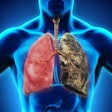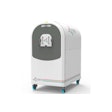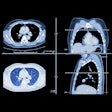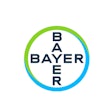A laxative-free virtual colonoscopy bowel preparation significantly improved the patient experience in a study of more than 600 screening subjects by researchers at Massachusetts General Hospital (MGH) and three other U.S. institutions.
The researchers found that patients who received the laxative-free preparation had increased comfort, fewer changes in bowel habits, and decreased severity of bowel habit changes compared with patients undergoing standard cathartic preparation. In addition, the technique may contribute to screening participation, according to MGH's Dr. Vij Abhinav, Dr. Michael Zalis, and colleagues.
Colon cancer screening in the U.S. and other countries is marked by relatively low screening participation, likely due to the discomfort of cathartic bowel preparations, said Zalis, who presented the team's findings at the recent RSNA 2011 meeting in Chicago.
"A patient-friendly or noncathartic laxative technique may improve adherence with screening guidelines, and if clinically validated in performance for polyp detection, a laxative-free technique might represent an important menu option," he said.
The study aimed to compare the patient experience associated with bowel preparation using a laxative-free virtual colonoscopy (also known as CT colonography or CTC) protocol (lfCTC) compared with a standard cathartic prep optical colonoscopy (OC) protocol. Part of the Partners-UCSF trial, the study was a prospective, multicenter test comparison of lfCTC and optical colonoscopy at three academic centers in the Boston area and the University of California, San Francisco (UCSF), Zalis said. Candidates were excluded for inflammatory bowel disease, prior polyposis or colon cancer, or prior screening within the previous five years.
From 2005 to 2010, 605 average- and moderate-risk individuals between 50 and 80 years of age were examined. The subjects underwent CTC and then standard optical colonoscopy within five weeks.
The CTC prep began two days prior to screening with the following:
- Three low-fiber meals per day plus an additional 20 oz of beverage
- Five mL of nonionic iodinated contrast (Omnipaque 300, GE Healthcare) diluted in a 10-oz beverage three times a day
- A zero-fiber meal kit the day before CTC
- On the day of the exam, 15 mL of nonionic iodinated contrast in a 32-oz beverage to optimize tagging in the cecum
The optical colonoscopy prep consisted of 2 L of polyethylene glycol plus bisacodyl sodium (HalfLytely, Braintree Laboratories).
The subjects completed a paper-based survey; the CTC component was completed right after the CTC exam, and the colonoscopy portion was completed right after conventional colonoscopy, Zalis explained. The participants rated the following:
- Discomfort experienced with the bowel prep on a scale of 1 (no discomfort) to 5 (severe pain)
- Difficulty experienced with the bowel prep from 1 (no difficulty) to 5 (extreme difficulty)
In addition, they also answered "yes" or "no" to the question "Did you experience a change in bowel habits?"
If applicable, the severity of the change in bowel habits was rated on a scale of 1 (very mild) to 5 (very severe). "For all the scalar data, 1 represents the best answer and 5 represents the worst answer from the point of view of the patient," Zalis said.
The researchers compared paired scalar subject responses using the Wilcoxon signed-rank test and overall difference of binary responses using McNemar's test. In addition, subanalyses were performed separately on the group of subjects who had undergone previous bowel preps to address potential confounding issues, Zalis said. In all, 559 (92%) of 609 surveys were completed.
The median discomfort score associated with CTC bowel prep was 1, compared with 2 for the optical colonoscopy prep (p < 0.0001). The median difficulty score associated with CTC bowel prep was 2, versus 3 for the optical colonoscopy prep (p < 0.0001). Only 54% (302/559) of patients receiving the CTC bowel prep reported a change in bowel habits, which was significantly lower than the 93% (517/559) of patients undergoing the optical colonoscopy prep (p < 0.001).
"When we pose such an open-ended question, there is some report of bowel change even with the laxative-free exam, corroborating the notion that there is no such thing as a completely prepless exam," Zalis said. As for potential confounding among subjects who had undergone previous preps, separate analysis of that subcohort showed no statistically significant influence on their reported experience in any of the questions.
"Subjects reported significantly improved comfort, less bowel change, and a decreased severity of bowel habit change with a laxative-free prep as compared to standard cathartic prep, and in conjunction with emerging performance data, the survey results suggest that a laxative-free technique may contribute to screening participation," Zalis said.
The necessity of having the optical colonoscopy questionnaire after the patients answered the CTC questionnaire meant that the first exam could have influenced the answers to the second questionnaire, and this was seen as a study limitation, Zalis said. "But having said that, we would expect the answers to be biased against CTC, and, in fact, the answers that we had showed a significant improvement [with CTC]," Zalis said.
In response to a question from session co-moderator Dr. Judy Yee from UCSF, Zalis said the group would like to do further work toward adapting the prep to large-scale screening by shortening the protocol to a one-day technique "that would make it practically easier to participants," he said.
In addition, the current CTC prep is a homegrown kit containing an iodinated contrast agent and a zero-fiber meal kit that the staff members assemble on their own. "If this kind of exam gains some traction -- and we're not there yet, to be frank -- but if it does gain traction, we hope there would be increasing vendor support to facilitate the deployment of a kit that would make this kind of exam laxative and tagging easier to perform," Zalis said.




















